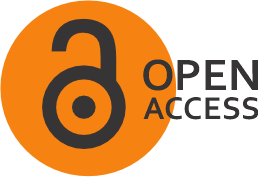Implementation of PAI Learning in Instilling Civilized Attitudes in Children Using Web Games

Published online: 1 Mar 2025
Abstract
Purpose—The use of technology in education is growing, and one of the latest innovations is the application of web games as a tool to teach mosque manners to children. This journal discusses the development and implementation of interactive web games specifically designed to introduce mosque adab values, such as politeness, order, and respect for places of worship. Through captivating and educational games, children can learn while playing, thereby increasing their motivation and interest in understanding mosque manners.
Methodology/Design/Approach—This study uses a qualitative method to evaluate the effectiveness of web games in the learning process.
Findings—The results showed that students showed an increase in understanding and application of mosque adab values after interacting with the game. In addition, web games also encourage social interaction among children, reinforcing a sense of community.
Originality/value—These findings suggest that technology can be an effective tool in religious education and is expected to inspire educators to integrate innovative methods in learning mosque manners.
References
Amiruddin. (2020). Sejarah Masjid di Indonesia dan Pengaruhnya dalam Dakwah Islam. Pustaka Islam.
Ashaari, M. F., Ismail, Z., Puteh, A., Samsudin, M. A., Ismail, M., Kawangit, R., Zainal, H., Nasir, B. M., & Ramzi, M. I. (2012). An Assessment of Teaching and Learning Methodology in Islamic Studies. Procedia - Social and Behavioral Sciences, 59, 618–626. https://doi.org/10.1016/J.SBSPRO.2012.09.322 DOI: https://doi.org/10.1016/j.sbspro.2012.09.322
Damar. (2022). Pengaruh Game Online pada Anak. Penerbit Indonesia Maju.
Desi Nurlita dkk. (2023). Systematic Literature Review: Pemanfaatan Game Edukasi Digital sebagai Media Pembelajaran Biologi di SMA. Detikproperti, 1(1), 119–121.
Hidayat, T., Syamsu Rizal, A., Abdussalam, A., & Bandono Musfiqon, A. (2023). Techniques and Steps of Islamic Education Learning Development: Integration of Islamic Values in Learning. Halaqa: Islamic Education Journal, 7(2), 83–91. https://doi.org/10.21070/HALAQA.V7I2.1630 DOI: https://doi.org/10.21070/halaqa.v7i2.1630
Hoerudin, C. W., Syafruddin, S., Mayasari, A., Arifudin, O., & Lestari, S. (2023). E-Learning as A Learning Media Innovation Islamic Education. QALAMUNA: Jurnal Pendidikan, Sosial, Dan Agama, 15(1), 723–734. https://doi.org/10.37680/QALAMUNA.V15I1.4466 DOI: https://doi.org/10.37680/qalamuna.v15i1.4466
Idris, S., ZA, T., & Sulaiman, F. (2018). Critical Education Paradigm in the Perspective of Islamic Education. Advanced Science Letters, 24(11), 8226–8230. https://doi.org/10.1166/ASL.2018.12529 DOI: https://doi.org/10.1166/asl.2018.12529
Kementerian Agama RI. (2021). Pedoman Pengelolaan Masjid. Kemenag RI.
Kementerian Pendidikan dan Kebudayaan RI. (2021). Pendidikan dan Teknologi: Pemanfaatan Game Edukasi. Kemendikbud.
Kurniawati, E. (2021). Penerapan Media Pembelajaran Berbasis Permainan Monopoli Untuk Meningkatkan Prestasi Belajar PPKn. Pedagogi : Jurnal Pendidikan Dan Pembelajaran, 1(1), 1–5. https://doi.org/10.56393/PEDAGOGI.V1I1.74 DOI: https://doi.org/10.56393/pedagogi.v1i1.74
Nurhadi. (2018). Panduan Adab di Masjid. Pustaka Ilmu.
Nurudin. (2015). Peran Masjid dalam Pembangunan Peradaban Islam. PT. Gramedia.
Putrie, Y. E., & Maslucha, L. (2013). Seting Perilaku dan Teritorialitas Ruang sebagai Perwujudan Adab di Masjid Gading Pesantren Kota Malang. El Harakah: Jurnal Budaya Islam, 15(2), 185–198. https://doi.org/10.18860/EL.V15I2.2765 DOI: https://doi.org/10.18860/el.v15i2.2765
Raharjo. (2021). Implementasi Kurikulum di Sekolah: Pendekatan Praktis. Rajawali Press.
Sholeh, M., & Basuki, U. J. (2022). Edukasi Adab Makan dan Minum dengan Menggunakan Media Animasi Kartun pada TPA Masjid Al Ikhlas Graha Prima Sejahtera Bantul. GERVASI: Jurnal Pengabdian Kepada Masyarakat, 6(1), 28–37. https://doi.org/10.31571/GERVASI.V6I1.2605 DOI: https://doi.org/10.31571/gervasi.v6i1.2605
Sholikhah, A. (2016). STATISTIK DESKRIPTIF DALAM PENELITIAN KUALITATIF. KOMUNIKA: Jurnal Dakwah Dan Komunikasi, 10(2), 342–362. https://doi.org/10.24090/KOMUNIKA.V10I2.953 DOI: https://doi.org/10.24090/komunika.v10i2.953
Sinta dan Dewi. (2021). Pemanfaatan Game Edukasi Marbel Angka Berbasis Android Sebagai Media Pengenalan Angka Pada Anak Usia Dini. Jurnal Pendidikan Anak Usia DIni, 6(2), 24–32.
Suryana. (2018). Masjid dan Pendidikan Keagamaan di Indonesia. Penerbit Jurnal Islam.
Susanto. (2020). Game Edukasi untuk Anak di Era Digital. Penerbit Andi.
Sutrisno. (2021). Peran Orang Tua dalam Mengawasi Anak Bermain Game. Literasi Nusantara.
Suyadi, Nuryana, Z., & Fauzi, N. A. F. (2020). The fiqh of disaster: The mitigation of Covid-19 in the perspective of Islamic education-neuroscience. International Journal of Disaster Risk Reduction, 51, 101848. https://doi.org/10.1016/J.IJDRR.2020.101848 DOI: https://doi.org/10.1016/j.ijdrr.2020.101848
Thoma, R., Farassopoulos, N., & Lousta, C. (2023). Teaching STEAM through universal design for learning in early years of primary education: Plugged-in and unplugged activities with emphasis on connectivism learning theory. Teaching and Teacher Education, 132, 104210. https://doi.org/10.1016/J.TATE.2023.104210 DOI: https://doi.org/10.1016/j.tate.2023.104210
Torrens, I. C., Auer, R., Souza, D. F. P., Matos, S. N., & Borges, H. B. (2023). Digital Tools for Interactive Learning: A Systematic Mapping. RENOTE, 21(2), 403–412. https://doi.org/10.22456/1679-1916.137776 DOI: https://doi.org/10.22456/1679-1916.137776
Yuliani, W. (2018). METODE PENELITIAN DESKRIPTIF KUALITATIF DALAM PERSPEKTIF BIMBINGAN DAN KONSELING. Quanta : Jurnal Kajian Bimbingan Dan Konseling Dalam Pendidikan, 2(2), 83–91. https://doi.org/10.22460/Q.V2I2P83-91.1641 DOI: https://doi.org/10.22460/q.v2i2p83-91.1641
Zulkarnain, Mikail, E. P. W., Nawang, R. D., & Angga, W. A. (2022). Profil Pelajar Pancasila Pada Kurikulum Merdeka Belajar. Seminar Nasional Terapan Riset Inovatif (SENTRINOV) Ke-8 I, Vol. 8(2), 232–241. https://proceeding.isas.or.id/index.php/sentrinov/article/view/1242
Zulkarnain, Z., & Wiranata, I. H. (2023). Meningkatkan Prestasi Belajar Siswa dengan Discovery Learning Approach pada Mata Pelajaran PPKn SMA. PINUS: Jurnal Penelitian Inovasi Pembelajaran, 9(1), 21–31. https://doi.org/10.29407/PN.V9I1.20887 DOI: https://doi.org/10.29407/pn.v9i1.20887
License
Copyright (c) 2025 Khaerul Mu'min, Kinzha Syakriani (Author)

This work is licensed under a Creative Commons Attribution 4.0 International License.
Permission is granted subject to the terms of the License under which the work was published. Permission will be required if your reuse is not covered by the terms of the License.


